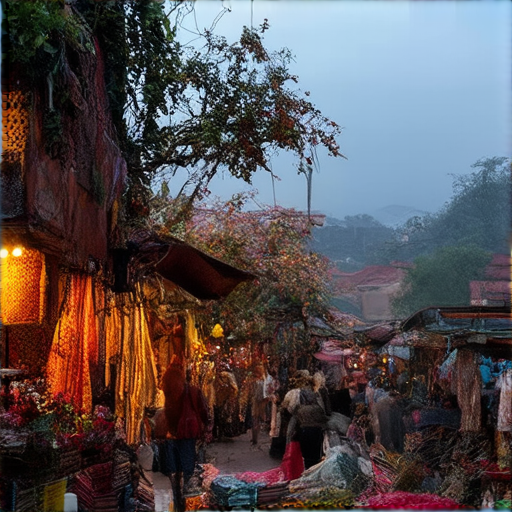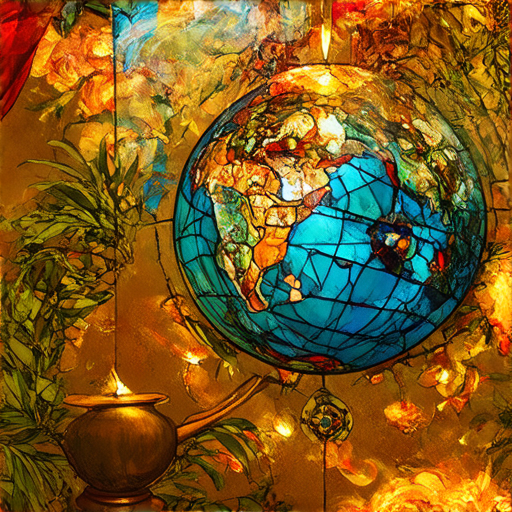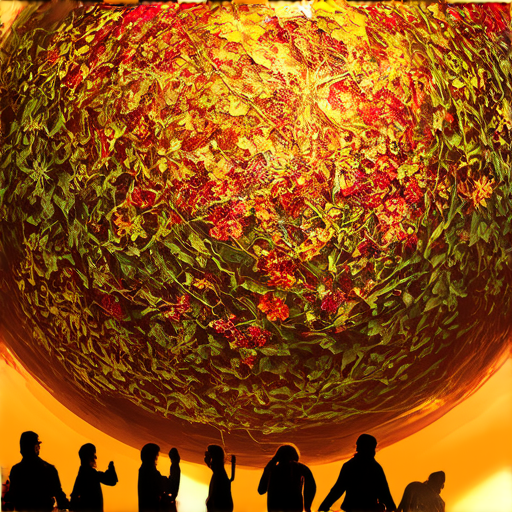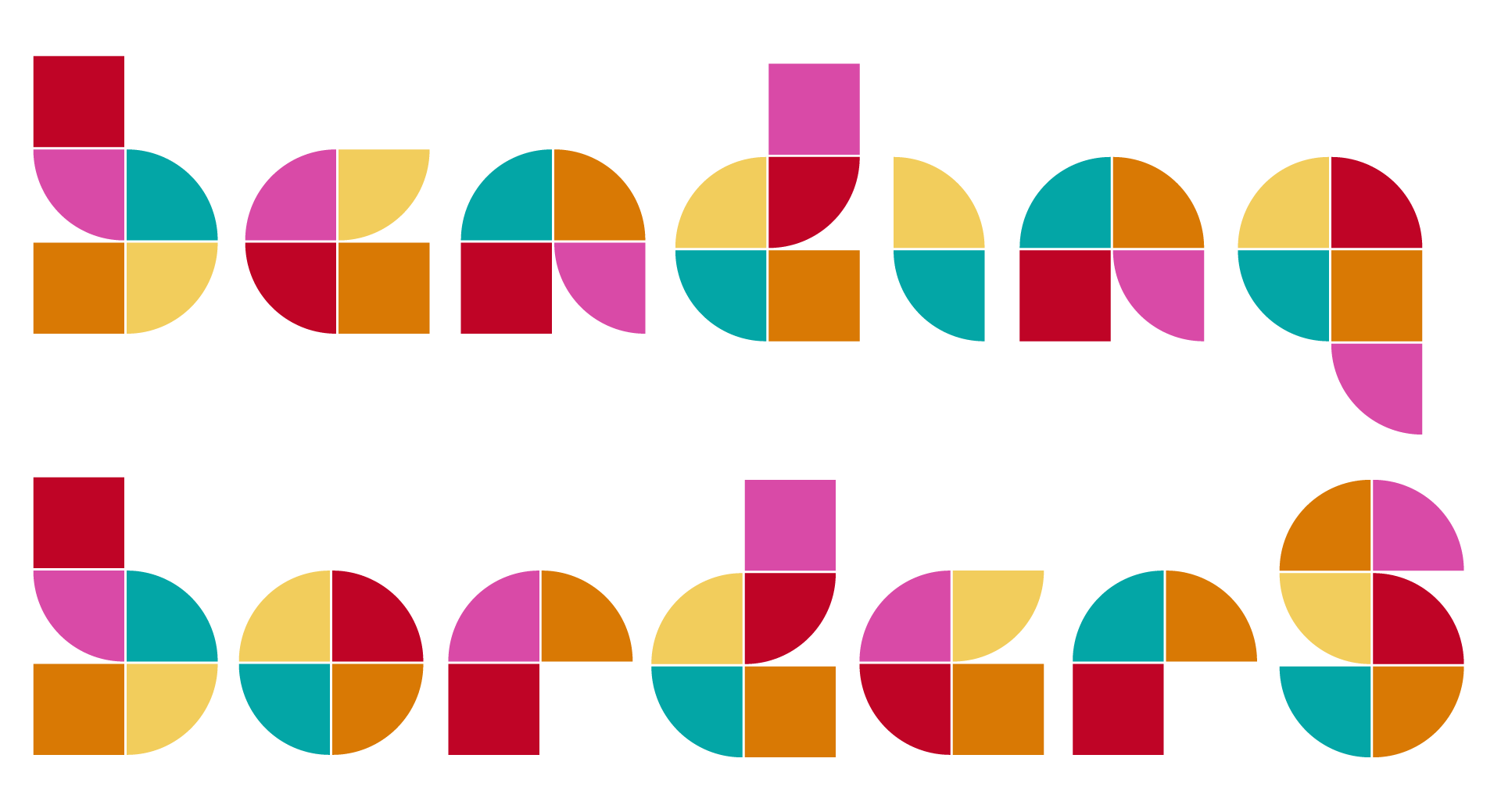Exploring diverse cultures around the world is a journey of discovery and understanding that offers numerous benefits for individuals and society as a whole. By delving into the rich tapestry of human experiences, we can gain a deeper appreciation for the complexities and nuances of different cultures, fostering empathy, tolerance, and global unity. From the vibrant traditions and customs of various nations to the universal values that unite us all, exploring different cultures can be a transformative experience that broadens our perspectives, challenges our assumptions, and inspires personal growth.
Through this article, we will embark on a fascinating exploration of diverse cultures, examining what it means to explore culture, the importance of cultural exploration, and the many ways to experience and learn about different cultures. We will delve into the top 10 cultures in the world, discover hidden gems, and uncover the significance of food in shaping cultural identities. We will also draw inspiration from famous quotes about cultural diversity and examine unique customs, traditions, and practices that highlight the richness and diversity of human experience.
Whether you’re a seasoned traveler or simply curious about the world beyond your doorstep, this article aims to ignite a passion for cultural exploration and provide practical tips and insights for those looking to experience other cultures firsthand. So join us on this journey of discovery, and let’s explore the incredible diversity of cultures that makes our world such a fascinating and beautiful place.

Exploring Cultural Diversity
Cultural diversity refers to the presence of different cultures within a society, community, or environment. Exploring cultural diversity involves understanding, appreciating, and valuing the unique customs, traditions, languages, and beliefs of various groups. This process can foster empathy, tolerance, and inclusivity, ultimately enriching our personal and collective experiences.
Ways to Explore Cultural Diversity
- Attend cultural events and festivals: Participate in cultural events, festivals, and celebrations to experience the vibrant traditions and customs of diverse communities. These events often showcase traditional music, dance, food, and art, offering a glimpse into the rich heritage of different cultures.
- Engage in intercultural dialogue: Engage in conversations with people from diverse backgrounds to learn about their experiences, perspectives, and values. Active listening and open-mindedness are essential in fostering meaningful connections and promoting cross-cultural understanding.
- Explore cultural museums and exhibitions: Visit museums and exhibitions that showcase the history, art, and culture of diverse communities. These institutions provide valuable insights into the complexities of human experience and offer a platform for learning and reflection.
- Cook and taste international cuisine: Cooking and tasting international cuisine is an excellent way to explore cultural diversity. Each dish offers a window into the culinary traditions and ingredients of a particular culture, allowing us to appreciate the richness of global cuisine.
- Read literature and poetry from diverse authors: Reading literature and poetry from diverse authors provides a unique perspective on the human experience. It allows us to engage with the thoughts, emotions, and struggles of individuals from various cultural backgrounds, broadening our understanding of the world.
- Participate in language exchange programs: Language exchange programs enable us to learn about the linguistic nuances and cultural contexts of different languages. By engaging with native speakers, we can gain a deeper appreciation for the complexities of language and culture.
- Volunteer with organizations serving diverse communities: Volunteering with organizations serving diverse communities is an effective way to explore cultural diversity. By working alongside individuals from various backgrounds, we can develop a deeper understanding of the challenges and opportunities faced by these communities.
- Seek out diverse media representation: Seek out diverse media representation, including films, television shows, and books, to gain insight into the experiences and perspectives of underrepresented communities. This exposure can help break down stereotypes and promote greater understanding and empathy.
- Learn about historical and contemporary social justice movements: Learning about historical and contemporary social justice movements, such as the Civil Rights Movement and Black Lives Matter, provides a nuanced understanding of the complex relationships between culture, power, and social change.
- Practice self-reflection and cultural humility: Finally, practicing self-reflection and cultural humility is essential in exploring cultural diversity. By acknowledging our own biases and limitations, we can approach cultural exploration with a critical and open-minded perspective, fostering greater empathy and understanding.
What Does it Mean to Explore Culture?
Exploring culture is a multifaceted concept that encompasses various aspects of human experience, encompassing personal identity, social interactions, and global connections.
Understanding Personal Identity through Cultural Exploration
Cultural exploration plays a significant role in shaping our sense of self and personal identity. By immersing ourselves in diverse cultures, we can gain a deeper understanding of our own values, traditions, and customs.
This process allows us to identify areas of similarity and difference between our own culture and others, fostering empathy, tolerance, and cross-cultural competence.
Learn more about cultural exploration and its impact on personal identity
Research suggests that individuals who engage in cultural exchange programs exhibit increased cultural awareness, improved communication skills, and enhanced career prospects (Hofstede, 2001).
MMoreover, cultural exploration can help individuals navigate complex social situations, build stronger relationships, and develop a more nuanced understanding of power dynamics and social hierarchies.
Exploring Global Citizenship through Cultural Exchange
Global citizenship involves recognizing our shared humanity and embracing our interconnectedness across borders and cultures.
Cultural exploration is a vital component of this concept, enabling us to develop a broader perspective on the world and its complexities.
Discover how cultural exchange programs promote mutual understanding and respect among nations
According to UNESCO, cultural exchange programs have the potential to “promote mutual understanding, respect, and cooperation among nations” (UNESCO, 2019).
Furthermore, cultural exploration can facilitate the development of global perspectives, encouraging individuals to think critically about issues like globalization, inequality, and environmental sustainability.
Engaging with Multicultural Communities through Cultural Immersion
Cultural immersion involves actively participating in and engaging with multicultural communities, either locally or internationally.
This approach enables individuals to develop a deeper understanding of diverse cultures and foster meaningful connections with people from different backgrounds.
Explore different cultures and traditions through immersive experiences
Research has shown that cultural immersion can lead to increased language proficiency, improved cognitive abilities, and enhanced creativity (Krashen, 1982).
MMoreover, cultural immersion provides opportunities for individuals to share their own cultural practices, traditions, and values, promoting cross-cultural understanding and exchange.
Replicating Cultural Exploration in Everyday Life
While cultural exploration may seem like a luxury reserved for international travel or academic pursuits, there are numerous ways to incorporate this concept into everyday life.
Attend cultural events, festivals, and exhibitions in your local community.
Engage with people from diverse backgrounds through social media, online forums, or volunteer work.
Read inspiring stories of cultural exploration and exchange
Cook traditional dishes from different cultures and experiment with new recipes.
Read literature, watch films, or listen to music from around the world.

Discovering Hidden Gems
Exploring diverse cultures is an exciting journey that allows us to discover hidden gems and gain a deeper understanding of the world around us.
What are some lesser-known cultures worth exploring?
- Bending Borders has curated a list of top 10 cultures in the world, showcasing unique destinations, travel tips, and cultural insights for readers interested in learning about the world from varied viewpoints.
- A study by the Pew Research Center found that 77% of Americans believe that cultural exchange programs can help break down stereotypes and promote cross-cultural understanding.
How can researching local customs enhance travel experiences?
Researching local customs is an excellent way to prepare for a trip and make the most of your travel experience.
- Understanding local customs and traditions can help you navigate unfamiliar places and avoid unintended offense.
- Learning about local cuisine and drinks can enhance your dining experiences and allow you to connect with locals on a deeper level.
Experiencing Different Cultures Through Food
Culture is deeply intertwined with food, and exploring different cuisines is an excellent way to experience the diversity of cultures firsthand.
What are some traditional dishes from diverse cultures?
- Korean BBQ is a popular dish in Korea, characterized by marinated meats grilled to perfection.
- Ethiopian injera is a sourdough flatbread that serves as a staple in Ethiopian cuisine, often used to scoop up stews and salads.
- Mexican tacos are a classic street food in Mexico, filled with a variety of ingredients such as meat, cheese, and vegetables.
How does food play a significant role in cultural identity?
Food plays a vital role in shaping cultural identity and is often closely tied to tradition, family, and community.
- Cooking and sharing meals is a universal language that transcends borders and cultures.
- Traditional dishes often hold sentimental value and evoke memories of childhood, family gatherings, and special occasions.

Exploring Different Cultures Through Personal Experiences
Understanding and appreciating diverse cultures can significantly enhance one’s personal growth, foster empathy, and promote global unity. Exploring different cultures allows individuals to gain a deeper understanding of various perspectives, traditions, and ways of life.
Immersive Experiences
Engage in immersive experiences that allow you to step into the shoes of people from different cultures. This could involve traveling to foreign countries, attending cultural festivals, or participating in traditional activities. For example, visit the Bending Borders Culture Exchange Program to immerse yourself in a foreign culture and gain valuable insights into daily life, customs, and values.
Cultural Exchange Programs
Join cultural exchange programs that enable you to live with host families or participate in homestays. These programs provide invaluable opportunities to learn about daily life, customs, and values in a foreign country. Consider joining the Cultural Vistas program to engage in meaningful cultural exchanges and develop lifelong connections with people from diverse backgrounds.
Language Learning
Acquire proficiency in languages spoken in different cultures. This will help you navigate everyday situations, communicate effectively, and appreciate the nuances of language and communication styles. Take online courses or attend language classes to improve your language skills and expand your cultural knowledge.
Food and Cuisine
Explore the rich culinary diversity of different cultures by trying local dishes, cooking classes, or food tours. Savoring flavors and aromas from around the world can evoke emotions and create lasting memories. Visit the Food Network website to discover new recipes and cooking techniques from various cultures.
Artistic Expression
Delve into the world of art, music, literature, and dance from various cultures. Appreciate the unique styles, themes, and techniques that reflect the history, values, and traditions of different societies. Attend concerts, exhibitions, or performances to experience the artistic expressions of different cultures firsthand.
Interpersonal Connections
Build meaningful relationships with people from diverse backgrounds through social events, community groups, or volunteer work. Nurturing friendships across cultures can broaden your perspective and foster empathy. Join organizations like International Student Organizations to connect with students from diverse cultural backgrounds.
Critical Thinking and Reflection
Regularly reflect on your experiences, thoughts, and feelings. Analyze how cultural differences shape your perceptions, challenge your assumptions, and influence your worldview. Practice critical thinking and reflection to deepen your understanding of cultural diversity and its significance.
Empathy and Understanding
Cultivate empathy by putting yourself in others’ shoes and attempting to see things from their perspective. Recognize that cultural differences are not inherently good or bad, but rather complex and multifaceted. Develop empathy and understanding by engaging with people from diverse backgrounds and listening to their stories.
Respect and Sensitivity
Approach cultural exploration with respect, sensitivity, and humility. Be aware of power dynamics, historical contexts, and potential biases that may impact your interactions with people from different cultures. Treat cultural differences with respect and sensitivity to foster positive relationships and mutual understanding.
Personal Growth and Transformation
Allow cultural exploration to inspire personal growth, transformation, and self-discovery. As you navigate unfamiliar territories, you may uncover new passions, interests, and values that enrich your life and broaden your horizons. Embrace the transformative power of cultural exploration to become a more empathetic, open-minded, and globally conscious individual.
Examining Unique Customs
Cultural diversity is a vital aspect of human existence, and numerous quotes highlight its significance. One famous quote that stands out is:
Famous Quote About Cultural Diversity
- “The world is a book, and those who do not travel read only one page.” – Saint Augustine.
- “Diversity is being invited to the party. Inclusion is being asked to dance.” – Vironika Tereh.
- “A nation’s culture gathers knowledge from the beginning to the end, but true wisdom begins with knowing how little we know.” – Unknown.
- “We must believe that we are gifted for something, and that this thing, at whatever cost, must be attained.” – Marie Curie.
- “You don’t have to burn books to destroy a culture. Just get people to stop reading them.” – Ray Bradbury.
- “The earth has enough resources for our need, but not enough for our greed.” – Mahatma Gandhi.
- “Travel is fatal to prejudice, bigotry, and narrow-mindedness.” – Mark Twain.
- “Silence is the most powerful weapon of a tyrant.” – Nelson Mandela.
- “Dialogue is the bridge between silence and speech.” – Kahlil Gibran.
- “The diversity of life is the source of all beauty and wonder.” – Unknown.
How do different cultures approach family and community?
Each culture has its own unique customs and traditions when it comes to family and community. For example, in many Asian cultures, respect for elders is deeply ingrained, and children are taught from a young age to show deference to their parents and grandparents. In contrast, in some Western cultures, the emphasis is on individualism and independence, and families may place less emphasis on traditional roles and responsibilities.
In Africa, community is often seen as a central part of daily life, with extended families living together in close proximity. This can lead to strong social bonds and a sense of belonging, but also presents challenges such as conflict resolution and resource sharing.
In many Indigenous cultures, the concept of family extends beyond biological ties, encompassing a broader network of relatives, friends, and community members. This can lead to a strong sense of connection and shared responsibility, but also requires a deep understanding of complex kinship systems and cultural protocols.
These are just a few examples of the diverse ways in which cultures approach family and community. By exploring these differences, we can gain a deeper appreciation for the richness and complexity of human experience.
Exploring Examples of Cultural Diversity
To illustrate the diversity of cultures, let’s consider a few examples:
- For instance, in Japan, the concept of “wa” refers to the ideal of harmony and unity within society. This is reflected in the country’s emphasis on group cohesion and social hierarchy.
- In India, the festival of Diwali is celebrated with great enthusiasm and fervor, symbolizing the triumph of light over darkness and good over evil.
- In Brazil, Carnival celebrations are known for their vibrant colors, music, and dance, showcasing the country’s rich Afro-Latin American heritage.
- In Morocco, the city of Marrakech is famous for its bustling souks and vibrant markets, reflecting the country’s blend of Arab, Berber, and Mediterranean influences.
These examples demonstrate the incredible diversity of cultures around the world, each with its own unique customs, traditions, and values.

Overcoming Language Barriers
Language barriers can significantly hinder cultural exploration, making it challenging for individuals to engage with foreign cultures. However, there are several strategies that can be employed to overcome these obstacles.
How Can Language Barriers Impact Cultural Exploration?
- Language barriers can limit access to cultural experiences, making it difficult for individuals to immerse themselves in foreign cultures.
- Language barriers can also create communication challenges, leading to misunderstandings and misinterpretations.
- Furthermore, language barriers can prevent individuals from fully appreciating cultural nuances and subtleties.
What Strategies Can Be Used to Overcome Language Obstacles?
- Learning a few basic phrases in the local language can go a long way in breaking down language barriers.
- Using translation apps or dictionaries can also aid in communication.
- Seeking guidance from locals or tour guides can provide valuable insights and assistance.
- Additionally, many cultural institutions offer language classes or workshops, which can help individuals improve their language skills.
Building Bridges Through Cultural Exchange
Cultural exchange programs play a vital role in bridging cultural divides and promoting cross-cultural understanding.
What Are Some Ways to Foster Greater Understanding Between Cultures?
- Participating in cultural festivals and events can provide opportunities for interaction and exchange.
- Engaging in conversations with people from different cultures can help break down stereotypes and misconceptions.
- Sharing meals and traditional foods can foster a sense of community and connection.
- Moreover, participating in volunteer work or community service projects can promote mutual understanding and respect.
How Can Cultural Exchange Programs Promote Global Unity?
- Cultural exchange programs can help promote tolerance and acceptance by showcasing the diversity of cultures.
- These programs can also facilitate dialogue and cooperation among nations and communities.
- Furthermore, cultural exchange programs can foster a sense of shared humanity and common values.
- Ultimately, cultural exchange programs can contribute to a more harmonious and peaceful global community.
Bending Borders and Cultural Exchange
Bending Borders, a cultural exploration platform, offers a range of resources and tools for individuals seeking to explore different cultures.
The platform features articles, videos, and podcasts that showcase unique destinations, travel tips, and cultural insights.
By leveraging these resources, individuals can gain a deeper understanding of diverse cultures and promote cross-cultural understanding.

0 Comments